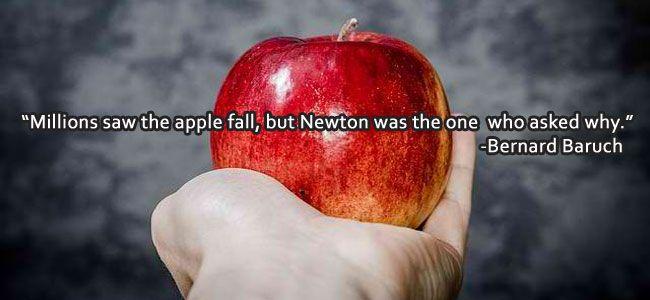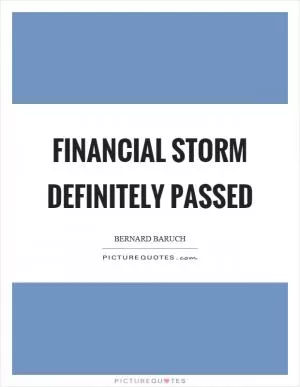Millions saw the apple fall, but Newton was the one who asked why

Millions saw the apple fall, but Newton was the one who asked why
Bernard Baruch, a renowned American financier and statesman, once said, "Millions saw the apple fall, but Newton was the one who asked why." This quote encapsulates the essence of curiosity, innovation, and critical thinking. It highlights the importance of questioning the world around us and seeking to understand the underlying principles that govern it.Sir Isaac Newton, the famous physicist and mathematician to whom Baruch refers, is best known for his work on the laws of motion and universal gravitation. One of the most well-known stories about Newton is the one where he observed an apple falling from a tree, which led him to ponder why objects fall towards the Earth. This simple observation sparked a chain of thought that eventually led to the development of his groundbreaking theories on gravity.
What sets Newton apart from the millions who witnessed the same event is his insatiable curiosity and his willingness to question the natural world. While others may have simply accepted the phenomenon of falling objects as a fact of life, Newton delved deeper into the underlying mechanisms at play. By asking "why," he was able to uncover the fundamental principles that govern the motion of objects in the universe.
Baruch's quote can be interpreted as a call to action for individuals to cultivate their curiosity and inquisitiveness. It serves as a reminder that true innovation and progress come from asking questions, challenging assumptions, and seeking to understand the world in a deeper way. In a world that is constantly evolving and changing, it is essential to adopt a mindset of curiosity and exploration in order to stay ahead of the curve.












 Friendship Quotes
Friendship Quotes Love Quotes
Love Quotes Life Quotes
Life Quotes Funny Quotes
Funny Quotes Motivational Quotes
Motivational Quotes Inspirational Quotes
Inspirational Quotes